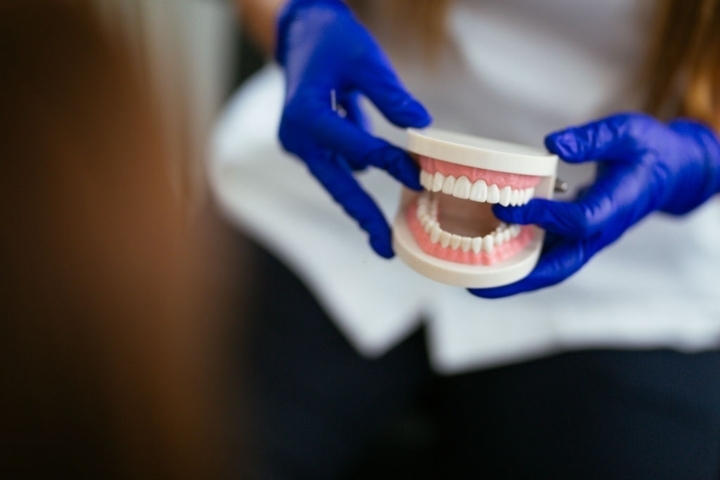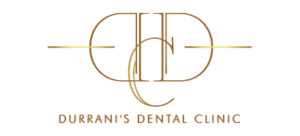
As a trusted dentist in Karachi, I frequently see patients struggling with the effects of sugar on their oral health. Sugar isn’t just in desserts—it hides in almost every processed food we consume daily. Understanding how sugar affects your teeth can help you take control of your oral hygiene and prevent long-term dental problems. Let’s explore the harmful effects of sugar on your teeth, the warning signs of damage, and practical steps you can take for a healthier smile.
How Sugar Damages Your Teeth
- Sugar Feeds Harmful Bacteria When you eat sugary foods or drink sweetened beverages, the bacteria in your mouth thrive on the sugar. These bacteria release acids that attack your teeth, beginning the cycle of decay.
- Acid Erodes Tooth Enamel The acids produced break down tooth enamel—the protective outer layer of your teeth. Once enamel is gone, it cannot regenerate, leaving teeth vulnerable to cavities and sensitivity.
- Cavities Form Over Time Constant acid exposure leads to cavities (dental caries). Cavities create holes in your teeth that require professional treatment, such as fillings, to restore dental health.
- Plaque Buildup and Tartar Sugar promotes plaque formation, a sticky film on your teeth that houses harmful bacteria. If not removed through brushing and flossing, plaque hardens into tartar, which can only be removed by a dentist.
- Gum Disease Risk Excess sugar contributes to gingivitis (gum inflammation). Without timely treatment, gingivitis may advance to periodontitis, a severe gum disease that can cause tooth loss.
- Dry Mouth and Reduced Saliva Sugary diets can reduce saliva production, making it harder for your mouth to neutralize acids and wash away bacteria—leading to faster decay.
- Increased Tooth Sensitivity As enamel erodes and dentin is exposed, teeth become highly sensitive to hot, cold, and sweet foods.
Warning Signs of Tooth Decay & Plaque Buildup
Watch for these common symptoms:
- Persistent bad breath or bad taste in your mouth
- Bleeding or swollen gums
- Toothaches or facial swelling
- Tooth sensitivity to hot, cold, or sweet foods
- Pain while chewing or general mouth discomfort
Early detection is essential—visit your dentist in Karachi for professional dental care before minor issues turn into major problems.
Stages of Cavity Development
- Demineralization – Early enamel damage
- Enamel Decay – Erosion of the tooth’s protective layer
- Dentin Decay – Spread to the softer inner layer
- Pulp Damage – Infection of the tooth’s inner core
- Abscess Formation – Painful infection with pus buildup
According to the Pakistan Dental Association, over 90% of adults in Pakistan suffer from dental caries, highlighting the urgent need for better oral hygiene and reduced sugar intake.
How to Protect Your Teeth from Sugar Damage
Smart Dietary Choices
- Read Food Labels: Avoid hidden sugars (often ending in “-ose” like glucose, fructose, sucrose).
- Choose Natural Sweeteners: Opt for honey, stevia, or maple syrup instead of refined sugar.
- Eat Whole Foods: Include fresh fruits, vegetables, nuts, dairy, and lean proteins.
- Limit Sugary Drinks: Replace sodas, energy drinks, and sweetened teas with water, milk, or herbal tea.
Daily Oral Hygiene Habits
- Brush twice a day with fluoride toothpaste
- Floss daily to remove plaque between teeth
- Use an antibacterial mouthwash (if recommended)
- Schedule regular check-ups and cleanings with your Karachi dentist
Additional Tips
Stay Hydrated: Drinking plenty of water helps neutralize acids and rinse away food particles.
Boost Dental Health with Nutrients: Consume foods rich in calcium and vitamin D, like dairy, leafy greens, and almonds.
Final Thoughts
Sugar may be unavoidable in our diets, but its effects on our teeth are preventable. By limiting sugar intake, practicing good oral hygiene, and visiting your dentist in Karachi regularly, you can protect your teeth from\ cavities, gum disease, and sensitivity.
At Dr. Shoaib Durrani’s Dental Clinic, we’re committed to helping you achieve and maintain a healthy, confident smile. Don’t wait for dental problems to worsen—take action today to safeguard your oral health.
Email: info@duranidental.com
Location: Office 302, Building No 45-C, Lane Number 10, D.H.A Phase 6
Phone No: (021) 37227441

